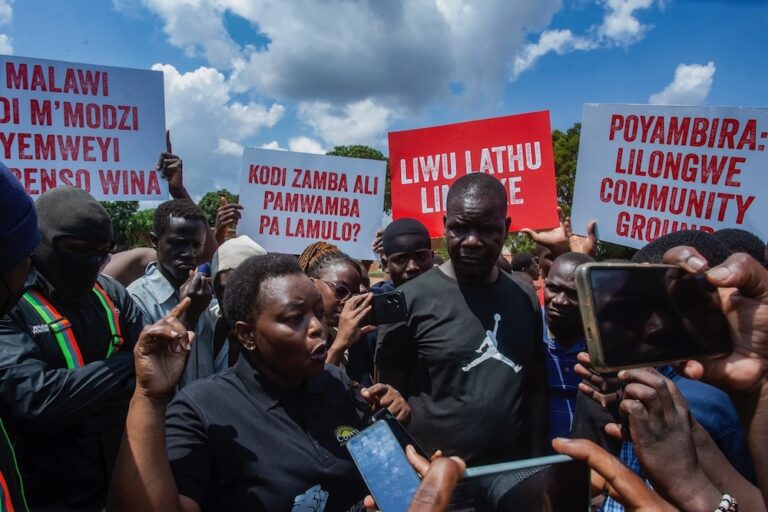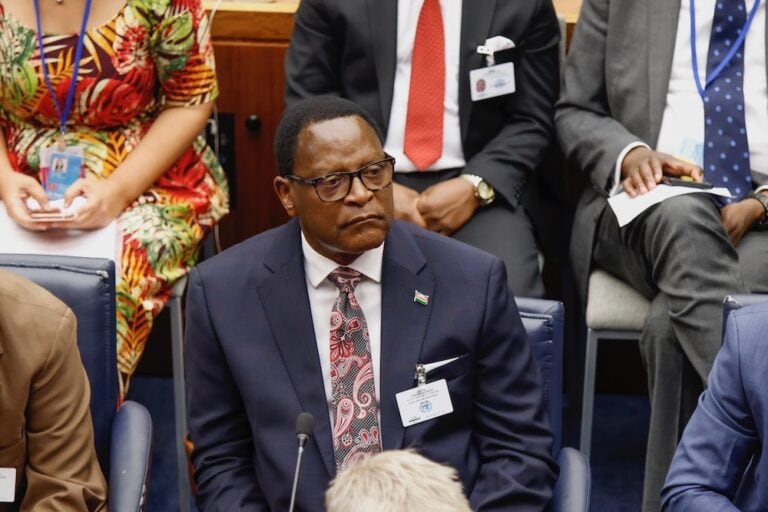(MISA/IFEX) – On 10 May 2004, presidential candidate Bingu Mutharika, of the ruling United Democratic Front (UDF) party, threatened to sue the “Weekend Nation” and “The Dispatch” newspapers for what he referred to as “defamatory” articles. In early May, the two newspapers ran a series of stories alleging that Mutharika was fired as secretary-general of […]
(MISA/IFEX) – On 10 May 2004, presidential candidate Bingu Mutharika, of the ruling United Democratic Front (UDF) party, threatened to sue the “Weekend Nation” and “The Dispatch” newspapers for what he referred to as “defamatory” articles.
In early May, the two newspapers ran a series of stories alleging that Mutharika was fired as secretary-general of the Common Market for Eastern and Southern Africa (COMESA) for “abuse of office” and “failure to motivate his management team”. The articles were published after President Bakili Muluzi publicly stated that Mutharika is the only qualified candidate who can “scoop Malawi from its economic malaise.”
The newspapers quoted a report by a special committee that was set up to audit COMESA. The committee’s findings led to Mutharika’s dismissal from the group in 1997.
At a 10 May press conference in Blantyre, Mutharika said the articles were “a devious fabrication” aimed at destroying his name. Mutharika, who only allowed two questions during the briefing, said the audit report was false and had not been signed.
However, Alfred Ntonga, editor-in-chief of Nation Publications Limited, which publishes the “Nation” and “Weekend Nation”, said his company would stand by its story as its sources were reliable.
“The Dispatch” managing editor Martines Namingah also defended his newspaper.


